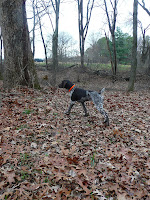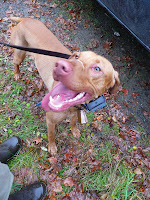To those who glimpsed it first,
Hills half-sunk in the sea.
This haiku is from a chapbook of Haiku for the Holy Places by the late, and fabulous, Orkney poet, George Mackay Brown, that I was given as a Christmas present. I honestly can't really say enough about GMB. He was one of very few authors who could write across genres, meaning that as beautiful as his poems are, his short-stories are arguably better. To my mind, his novels got better as he got older --perhaps because he'd learned how to pace himself from the delicate intensity of the poem to the short story and on to the novel. As a crossing place for languages, civilizations, religions, wars, and myths, Orkney was a powerful catalyst for his talent and imagination -- and a place that has become home to me. And I have always loved haiku -- I think it's the lyric efficiency of the genre, of a world in seventeen syllables. And bearing in mind its dedication to the natural world, I have always enjoyed my trips over to Hunting Haiku Daily.
Maybe it's because with winter here, folks are getting suitably
 reflective on their hunting seasons and on hunting in general. At the beginning of this month, Matt at Sometimes Far Afield put up a great piece on 'if hunting is not necessary to obtain food then why is hunting allowed?'; Holly at NorCal Cazadora also has a thoughtful piece on the paradox of hunting, on what feels like to have hunted successfully, and to have ended a beautiful life; and Mike at Living with Bird Dogs has a succinct observation or two about why reducing the experience of hunting to a numbers game is to do injustice to both the game you are hunting and to hunting itself. Hopefully this pic is as convincing an argument that 'hunting' is as much if not all about the relationship you have with your fierce, rugged hunting dog.
reflective on their hunting seasons and on hunting in general. At the beginning of this month, Matt at Sometimes Far Afield put up a great piece on 'if hunting is not necessary to obtain food then why is hunting allowed?'; Holly at NorCal Cazadora also has a thoughtful piece on the paradox of hunting, on what feels like to have hunted successfully, and to have ended a beautiful life; and Mike at Living with Bird Dogs has a succinct observation or two about why reducing the experience of hunting to a numbers game is to do injustice to both the game you are hunting and to hunting itself. Hopefully this pic is as convincing an argument that 'hunting' is as much if not all about the relationship you have with your fierce, rugged hunting dog.The most recent copy of Sporting Classics magazine (Jan/Feb 2009) arrived at work yesterday. I'll admit that Sporting Classics isn't my normal cup of tea -- too many ads for guns I'll never afford, to shoot at resorts or plantations that probably wouldn't let me run my own dogs, or shoot at game that makes a better rug than it does a sandwich -- but I came across Todd Tanner's 'Wild Heritage' column describing a three-day media event he attended this fall. The highlight of the column, though, was his being party to 'a reunion' -- of Rick Ridegway's reunion with hunting after 45years. Rick Ridgeway is, frankly, a man of mythic proportions in the mountaineering community -- after being the first to climb K2, arguably the world's most dangerous mountain, without supplemental oxygen in 1978. What clicked in my memory, though, was that Rick Ridgeway is the Vice President of Environmental Initiatives for leading outdoor clothing company, Patagonia, and one of the prime-movers behind their Freedom to Roam initiative to restore and maintain wildlife migration corridors.
I love Patagonia. I love their clothes and I love the majority of their politics. But as I became a hunter, I no longer saw myself in their catalogs... that might simply be because whatever chemicals are used to create 'Hunter's Orange' are in fact highly toxic and known to cause cancer in California (who knows!)... but it seemed as though the company had discretely filed away the fact that the reason its founder, Yvon Chouinard, had gone to high, rocky aeries as a teenager and become obsessed with scaling them was because he was first and foremost a falconer -- a hunter. I don't mean to imply deception on their part, just that for them to openly acknowledge the place of hunting in their corporate legacy is perhaps too messy.
Their stance seems like the inverse corollary to something Christina Larson in Washington Monthly wrote back in 2006 about 'an emerging environmental majority':
 "Americans like green, but they are less fond of greens. And that has been doubly true for outdoorsmen." To me, at least, Patagonia seemed to have forgotten that its environmental sensitivity had first and foremost stemmed from the attuned senses of a man who understood the majesty and beauty and tragedy that comes from a successful hunt, especially one that is the product of a relationship between man and a bird (or dog). And while they have embraced fishing, perhaps other kinds of hunting are simply too bloody or politically complicated.
"Americans like green, but they are less fond of greens. And that has been doubly true for outdoorsmen." To me, at least, Patagonia seemed to have forgotten that its environmental sensitivity had first and foremost stemmed from the attuned senses of a man who understood the majesty and beauty and tragedy that comes from a successful hunt, especially one that is the product of a relationship between man and a bird (or dog). And while they have embraced fishing, perhaps other kinds of hunting are simply too bloody or politically complicated.Nevertheless seeing Rick Ridgeway in Sporting Classics (along with Bill Klyn, Patagonia's fishing marketing manager and coordinator of the World Trout Initiative) is, I hope, an omen for the kinds of productive alliance that Mike, Finspot, Labrat and Matt Mullenix and others discussed in the comments section of his original post. Importantly, though, Todd Tanner also captured Rick's contemplative moment at the end of the day as he held two of the sharp-tails that had been shot that day. (I apologize for the lengthy quote, but I haven't been able to find Tanner's column on-line.)
In any case, a handful of us had the distinct pleasure of watching a good man reconnect with the landscape, and with himself, on a beautiful Montana afternoon. It was a blessing, pure and simple."
Having said all that, however distant Patagonia has become from those of us who enjoy hunting, we would probably all still benefit from reading Yvon Chouinard's revolutionary essay in the very first Chouinard Equipment catalog from 1974. As he wrote: "Thus, it is the style of the climb, not the attainment of the summit, which is the measure of personal success. Traditionally stated, each of us must consider whether the end is more important than the means."
Our two red-dog ruffians enjoyed a Christmas dinner of grilled quail we hunted back in November. I think it made them antsy to chase birds again. Thanks, too, to Jen for sending on these two pics of their respective majesties.




































